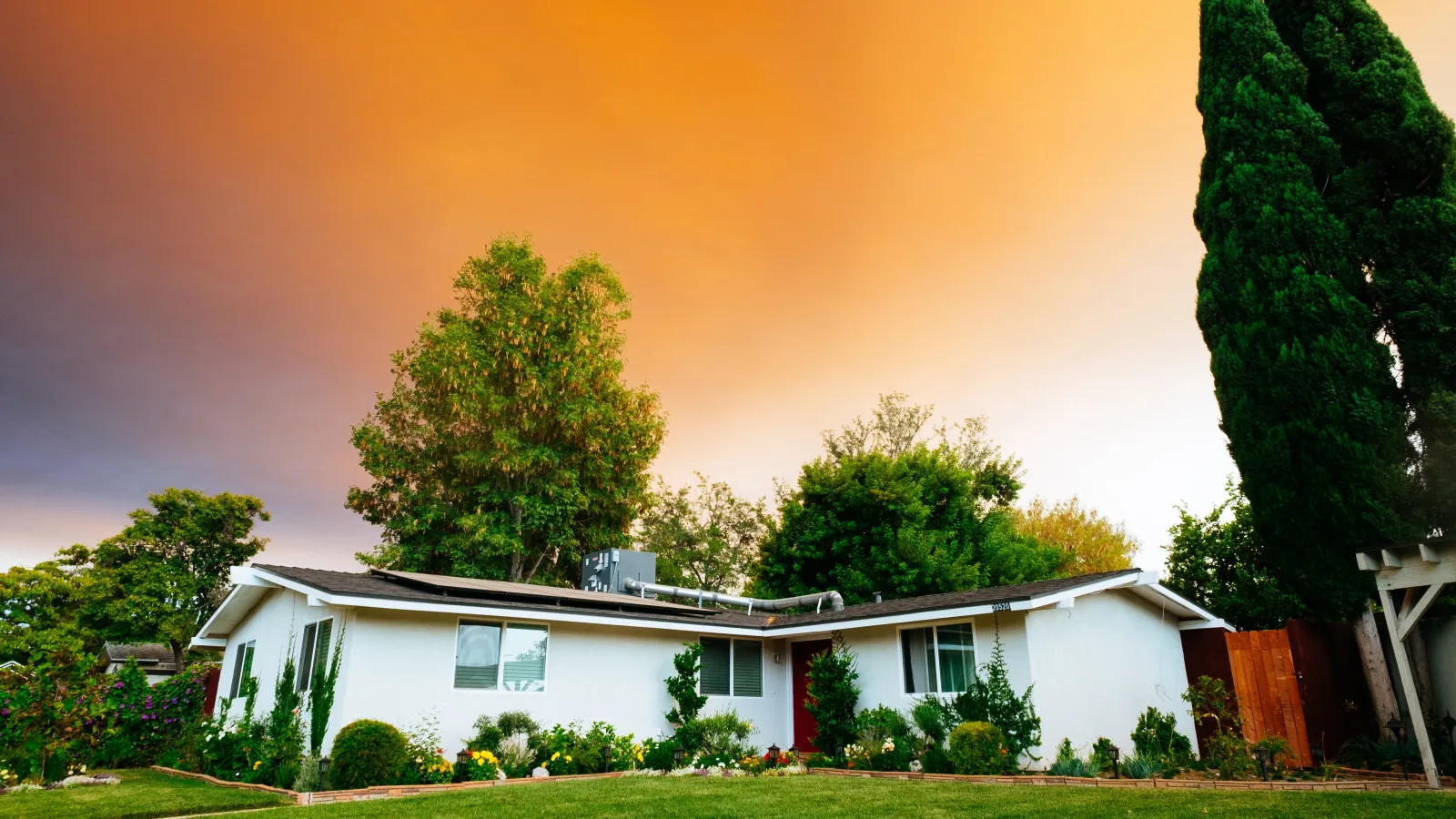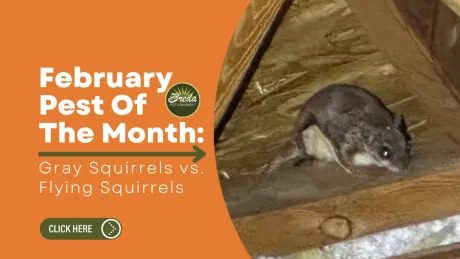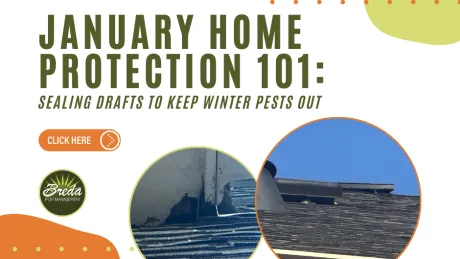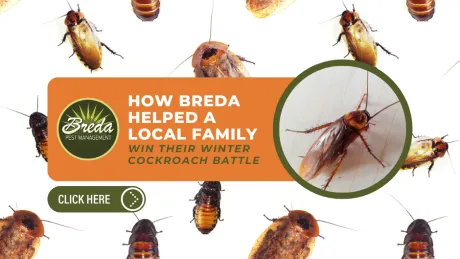It's summertime, and you're ready to lounge outside with a cool glass of lemonade after a long day of work, but those pesky mosquitoes won't leave you alone. But mosquitoes are far more than just harmless annoyances: beyond the itching and irritation, mosquito bites can transmit some incredibly dangerous diseases like Malaria, the Zika virus, yellow fever, and more.
However, as annoying and dangerous as they may be, and as tempting as it may be to find a quick DIY solution, don't go buying a mosquito blower for your yard just yet. Mosquito blowers are great for killing mosquitoes, but the chemicals they use can be harmful and even deadly to other insects, birds, and wildlife.
Most modern mosquito blowers contain one or all of the following chemicals:
- Pyrethroids, synthetic chemicals such as permethrin, resmethrin, or d-Phenothrin. These chemicals are toxic to mosquitoes, fleas, ticks, and most other insects. Unfortunately, synthetic pyrethroids also kill helpful insects, and while they are low-toxicity to mammals and practically nontoxic to birds, the same cannot be said for fish.
- Pyrethrins, botanical insecticides derived from chrysanthemum flowers. While not as harmful as traditional organophosphate pesticides, pyrethrins are still toxic to birds and mammals.
- Synergists, namely piperonyl butoxide and MGK-264, which have no overt pesticidal effects of their own and are instead used to boost the effects of pyrethroids and pyrethrins. Despite being nontoxic, synergists can nevertheless cause allergic reactions in mammals, and can even have carcinogenic effects in humans.
While the Environmental Protection Agency and chemical manufacturers have made great strides in limiting the negative impact of pesticides on the environment, a perfect solution has yet to be found. As it stands, while pesticides are essential to eliminating a mosquito population, indiscriminately blowing these chemicals into the environment can cause more harm than good.
Four creatures in particular are vulnerable to harm from mosquito blowers:
1. Bees
Bees don't get enough credit for their role in the environment. Beyond honey production, bees (particularly honeybees) are almost singlehandedly responsible for pollinating over 90 different types of foods that we eat every day. In fact, an estimated one-third of all food is dependent on bee pollination, making them a vital part of natural ecosystem, not only in North America but across the globe.
While bee stings are far more painful than mosquito bites, bees transmit none of the dangerous diseases, and their presence is exponentially more beneficial to humans. Unfortunately, mosquito blowers can't tell the difference.
If you happen to need bee removal services, give us a call!
2. Butterflies
Ironically, while bees are helpful to humans but hated for their stings, butterflies are beloved for their beautiful colors and graceful appearance despite causing considerable damage to crops as caterpillars. That said, butterflies still serve a number of vital functions within the ecosystem.
Beyond being pleasant to look at, butterflies are an essential part of the food chain, serving as prey to birds, bats, and several other animals. The animals that hunt butterflies, such as birds and bats, also hunt mosquitoes, so by keeping butterflies alive to serve as food, you're also helping sustain the population of natural mosquito predators.
Butterflies are incredibly important to our understanding of the environment, and are often used as model organisms for biological research. Like bees, butterflies help pollinate some of our favorite foods; sadly, butterflies are also just as vulnerable to mosquito blowers as well.
3. Fireflies
Despite the name, fireflies are aren't flies and don't create any sort of fire. Fireflies, or lightning bugs, are actually beetles, and the "fire" on their tails comes from a chemical reaction in their abdomens that creates a bioluminescent glow. These chemicals have been harnessed by humans for use in research on cancer, heart disease, cystic fibrosis, multiple sclerosis, and more.
Unlike most insects that are beneficial to humans, fireflies are notable because they carry almost no downsides to humans: they don't bite, they aren't poisonous, and they don't carry diseases. Like butterflies, fireflies also serve a vital role in the ecosystem, both as prey to birds and bats and as predators to snails, slugs, and insect larvae.
On long summer afternoons, a firefly's glow is a welcome sight to kids and adults alike, but the chemicals in mosquito blowers can extinguish that light forever.
4. Hummingbirds
Hummingbirds are small but beautiful, with iridescent feathers that can display a full spectrum of colors. Because of hummingbirds' unique design, they are able to reach and pollinate higher-up plants that other birds and insects can't. They are also a natural form of pest control, feeding on gnats,, caterpillars, insect eggs, and most importantly, mosquitoes.
Hummingbirds have huge appetites, and their frequent eating habits make them a great ally for mosquito population control. However, hummingbirds are also vulnerable to the chemicals in many pesticides. If you use a mosquito blower indiscriminately, you'll be doing more than killing these beautiful birds: you could be helping the mosquitoes by eliminating their key predators.
Other Animals Mosquito Blowers Affect
In addition to the specific animals above, mosquito blowers can also affect a number of other important animals in the ecosystem and especially those that actually prey on mosquitoes, namely fish. Mosquito eggs and larvae are only found in stagnant water, so killing their natural predators that reside there, such as mosquitofish, will be counterproductive.
For more information about mosquitoes, how they reproduce, and what you as a homeowner can do to stop them, download our free Ebook, How to Keep Mosquitoes Out of Your Yard This Summer.
Every lawn is different, and a one-size-fits-all method just won't work.
If you want the best results for your mosquito treatment, you need to find a pest control specialist that uses pesticides responsibly. At Breda Pest Control, we don't use blowers. When we treat your home, we'll kill the mosquitoes and only the mosquitoes, keeping your home safe without putting any other wildlife at risk.



